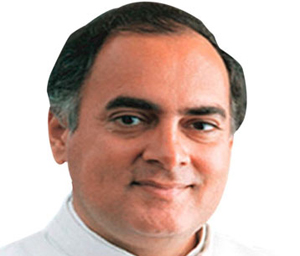Jaipur, Jul 18: BJP leader Laxmikant Bhardwaj filed a complaint against Congress leaders including Randeep Surjewala and Govind Singh Dotasra for associating Union Minister Gajendra Singh Shekhawat's name with an alleged audio clip related to "conspiring to topple" the elected government led by Chief Minister Ashok Gehlot in Rajasthan.
"Mahesh Joshi, Randeep Surjewala, and other accused have regularly been giving false and inflammatory statements against the BJP to criminally damage its reputation so that the blame for the current sorry state of affairs of the Congress can be pinned on the BJP. With the ill-intention of damaging the BJP''s reputation, a conspiracy was formed at the Chief Minister''s residence situated at 8 Civil lines," read the letter written by BJP Rajasthan spokesperson Bhardwaj to the Station Officer of Ashok Nagar police station read.
"From there (CM's residence) imitation of (voices) of people were falsely told to be of that of reputed leaders from the BJP and a fake phone conversation was created through which the false narrative of crores of rupees being offered to buy off Congress MLAs was created. The accused involved in this conspiracy have severely misused their position and power and the whole crime has been conducted by one named Lokesh Sharma, who calls himself an OSD of the Chief Minister," the letter further stated.
The complaint letter also said that Lokesh Sharma had "released three audio tapes to media workers on July 16, 2020, somewhere around 8:25 pm through WhatsApp so that the defamatory material can be circulated on a large scale to fulfill the criminal intent."
Mr Bhardwaj said that a news report in the Jaipur edition of a Hindi newspaper, published on July 17, 2020, had conveyed that the audiotape was released by Mr Sharma.
He further said that Congress leaders Randeep Surjewala, Govind Singh Dotasra, in a press conference held on Friday read out the conversation in the audio tapes publically and "using them as a basis accused the BJP of throttling democracy, sabotaging the mandate, and toppling the government."
Through this conspiracy, Mr Bhardwaj said that hateful and insulting comments are being made on the BJP and its supporters, and "on the basis of this the Special Operation Group (SOG) has filed fake lawsuits under Section 124A of the Indian Penal Code and is also threatening BJP leaders of arrest."
The BJP leader has urged the police officer to file a complaint against Mr Sharma, Mr Surjewala, Mr Dotasra, and others involved in the alleged conspiracy and take necessary action and recover the equipment used by them.
On June 17, Congress spokesperson Randeep Surjewala had accused Union Cabinet Minister Gajendra Singh Shekhawat and Congress legislator Bhanwarlal Sharma of conspiring to topple the elected government led by Chief Minister Ashok Gehlot in Rajasthan and subvert the voters' mandate.
"Yesterday, shocking tapes were aired by the media in which Union Minister Gajendra Singh Shekhawat, BJP leader Sanjay Jain and Congress MLA Bhanwar Lal Sharma spoke about bribing MLAs and bringing down Rajasthan government. Congress has suspended MLAs Bhanwar Lal Sharma and Vishvendra Singh from the primary membership of the party. The party has also issued show-cause notices to them," Mr Surjewala had said.
"We demand Rajasthan government and Special Operations Group (SOG) to register FIR and arrest the culprits as plenty of evidence has surfaced now," he had further stated.
Mr Surjewala had read out a transcript of an audio of alleged horse-trading between rebel MLAs and BJP, stating, "BJP has breached the trust of people. The audio clip reveals a horse-trading deal. This is a dark chapter in the history of democracy."
"This time the Narendra Modi government has challenged the wrong state," the Congress leader had said. He had alleged that the BJP has been "conspiring to topple Rajasthan government and buy legislators' allegiance."
![]()
 New Delhi, Feb 18: Supreme Court Tuesday commuted the death sentence to the three assassins of former prime minister Rajiv Gandhi to life imprisonment, holding that the 11-year long delay in deciding their mercy petition had a dehumanising effect on them.
New Delhi, Feb 18: Supreme Court Tuesday commuted the death sentence to the three assassins of former prime minister Rajiv Gandhi to life imprisonment, holding that the 11-year long delay in deciding their mercy petition had a dehumanising effect on them.




Comments
Add new comment